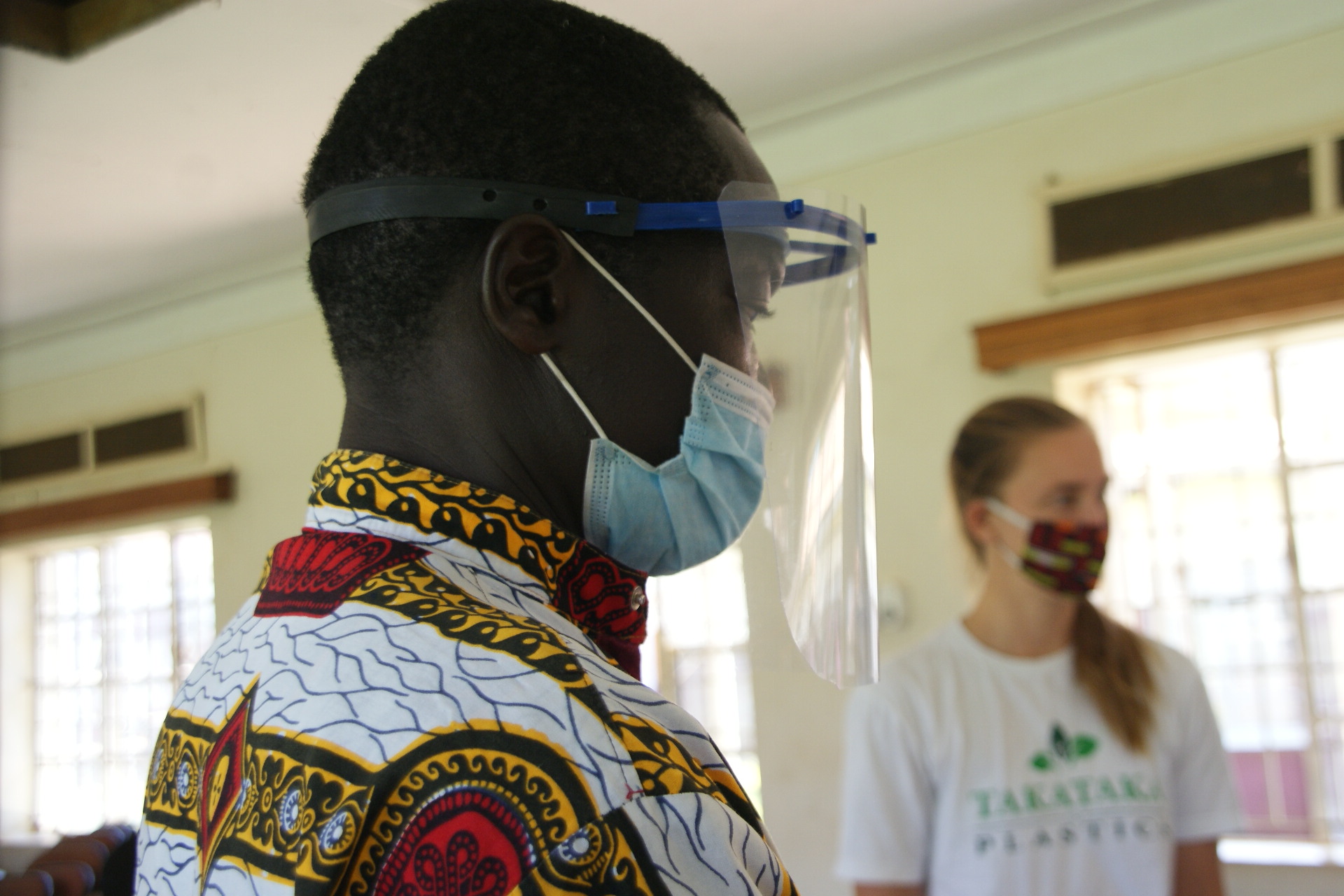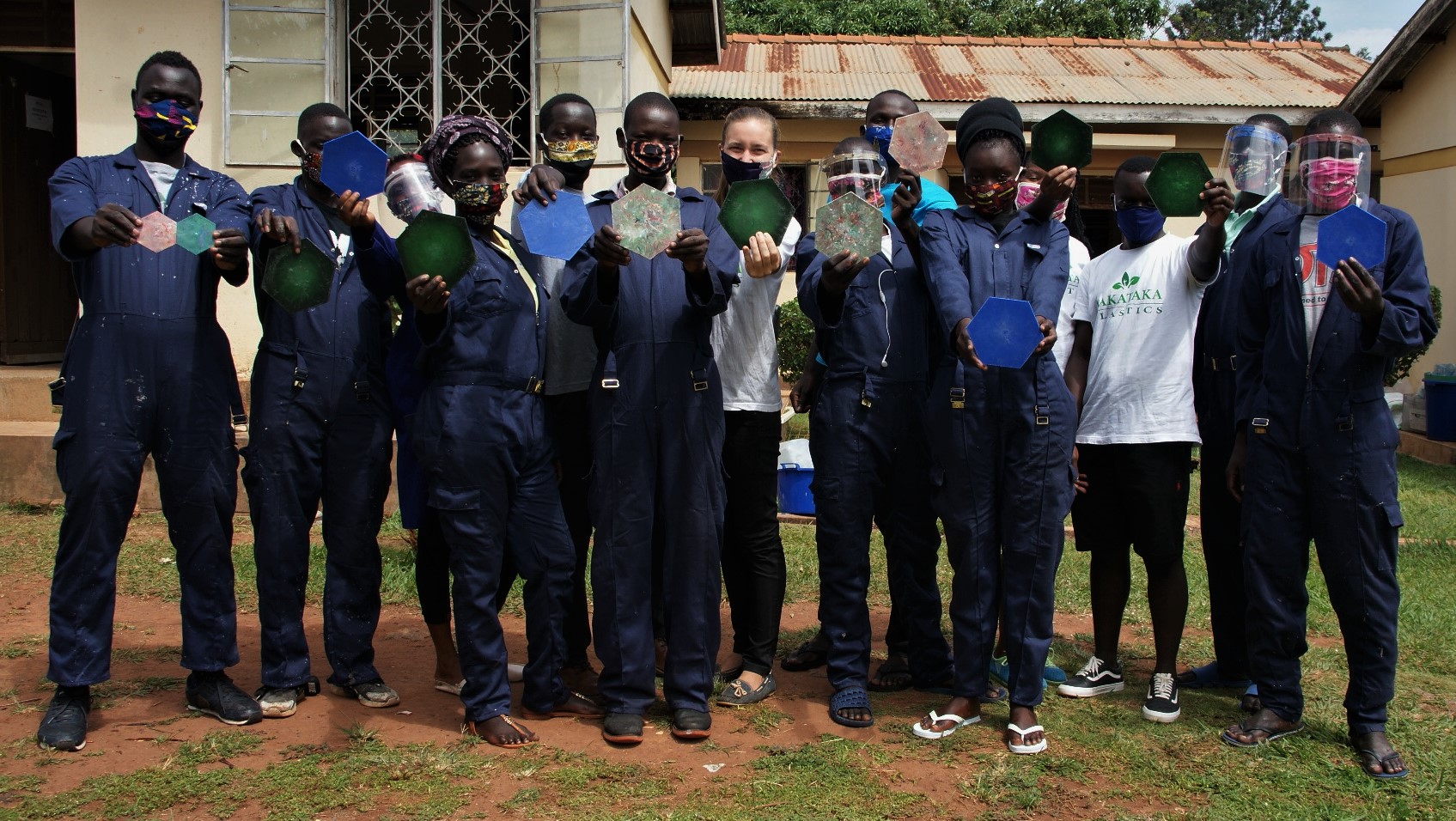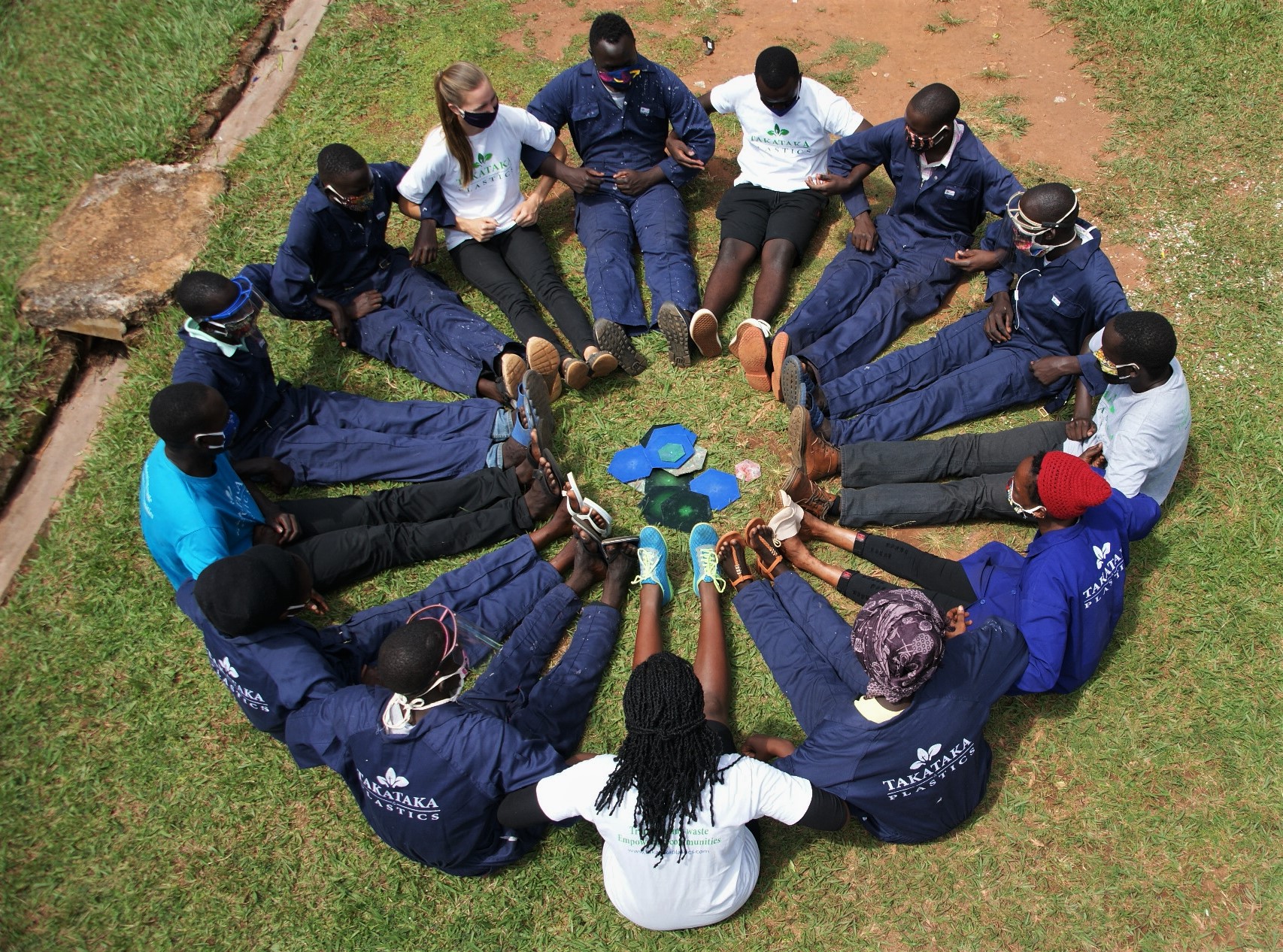

Beat COVID Together
Paige Balcom, Rodman Rockefeller Centennial Fellow; Cofounder and CTO of Takataka Plastics & UC Berkeley Mechanical and Development Engineering PhD Student
COVID-19 has affected every one of us. But the way it has impacted people in developing countries is different than the way it has affected most Americans. Uganda reported its first positive case on March 21, 2020. The Ugandan government quickly locked down the country: the airport and the borders were closed, along with all schools, churches and mosques, all non-food shops and non-essential factories. Virtually all transport was stopped—motorbikes were only allowed to carry cargo and people were not even allowed to drive their own vehicles—and a strict 7pm curfew was instituted. Eventually, even public exercise was stopped. Police and soldiers enforced the restrictions with arrests, fines, beatings, and even a couple of shootings. Every week or so President Museveni would give a televised speech reporting updates on the number of cases and announcing or clarifying new restrictions.
Although Uganda’s swift and strict lockdown helped prevent the spread of the virus, the intense lockdown had grave side effects. People struggled to find food—many Ugandans live day to day on what little they can earn doing small jobs or selling food and cheap products on the street. Since most people lost their jobs in the lockdown, they quickly exhausted their savings and couldn’t afford food. Even in the villages, it was a bad season because the harvest was not yet ready. Some people were surviving on just mangos when those ripened. People started coming to the Gulu District Headquarters begging for food. One of the ladies Takataka Plastics usually buys plastic waste from called us begging us to buy a sack of plastic from her even if we just left it in the store to use later because she was desperate to find something to feed her kids. People were subsisting on one meal a day.
Others were separated from their families. My pregnant neighbor’s husband was in South Sudan on business when the borders were closed, and the lockdown has prevented him from returning to be with his wife. One of the Gulu University students who was working on a project for Takataka Plastics rode his bicycle 9 hours to reach home when school closed because all transport was stopped. A newspaper reported how 7 students in Kampala didn’t have food, so they walked over 400 km to their home halfway across the country.
Many died not from COVID-19, but from preventable diseases and childbirth because they could not reach hospitals. A doctor friend shared how a young boy with malaria went to his village health center, but they didn’t have the ability to help him because his case was severe. Similarly, the number of maternal deaths has increased in Uganda because women couldn’t reach the hospital. One of my friends found a pregnant woman in labor trying to walk to the hospital, so he risked breaking lockdown orders and got his vehicle and drove the woman. Police stopped him on the way and impounded his vehicle.
One of the biggest losses to Ugandans is education. There’s no online learning. Some lessons are aired on TV and radio, but they’re only aired at specific times and many children don’t have access to these technologies. Some schools are offering take-home packets for children to work on at home, but many lose motivation when no one checks their work to know if they’re doing it properly and there are no exams to study for. Because of lack of COVID testing capacity, the government shows no signs of opening schools soon. Educators fear this could be a totally dead year for Ugandan students.
There was also a lot of misinformation initially. People didn’t know where COVID-19 came from, how they could contract it, or what to do if they did. People were afraid of all foreigners—even though I had been in Uganda since January, when I was walking on the street, people would cross to avoid walking near me. But after a couple weeks, most of that stopped as people learned about the virus from public health announcements on radio, street megaphones, text alerts, and recorded messages that played before you could make a phone call.
But amidst all the challenges, it was amazing to watch communities come together to help each other. As I shared in my previous post, Takataka Plastics pivoted to produce face shields for frontline medical workers from plastic waste. We’ve now delivered nearly 5,000 face shields and have 15 full-time employees. In the early days of lockdown, we also joined with a few other organizations working in Gulu to try to help with the immediate need for food. Through the help of many, many people from Gulu and across the world, we were able to distribute 78 tonnes of beans and posho to over 25,000 of the most food-vulnerable people in Gulu.

Many of Uganda’s lockdown restrictions are now being lifted. People have returned to work. Masks are required everywhere, and hand washing stations are outside every office, shop, and most homes—you feel like you wash your hands 50 times a day! As of early August, Uganda only has 1,200 cases and 7 deaths. But the side effects of lockdown have been severe.
But amidst all the losses and challenges, I am thankful I got to witness and play a small part in communities from across the world coming together to help Gulu. We showed that we can #BeatCOVIDTogether.
